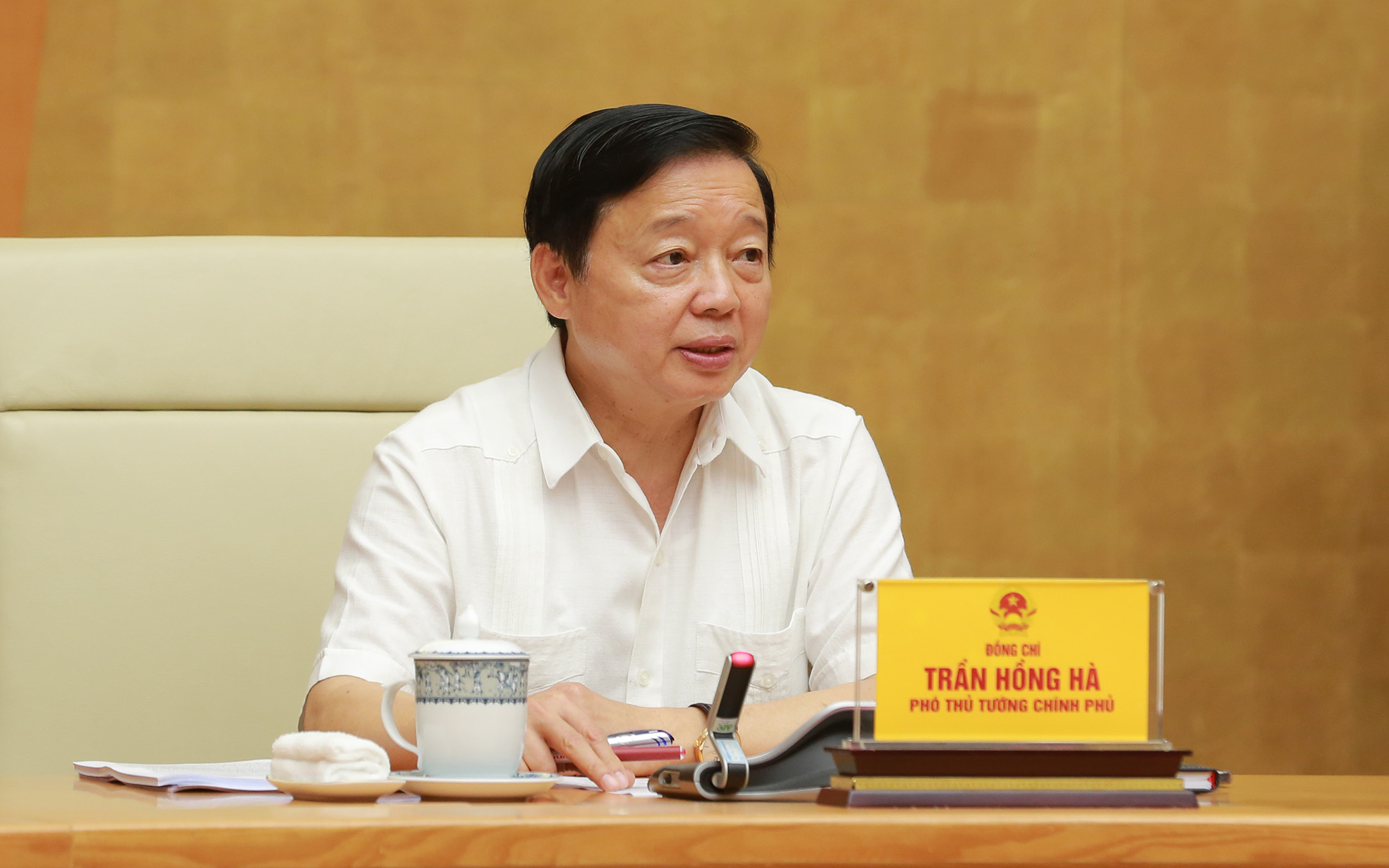
Deputy Prime Minister Tran Hong Ha: Electricity Law (amended) needs to address relationship between market economy and socialist orientation in direction of separating State management function from electricity production and business
Added many new regulations
Deputy Minister of Industry and Trade Truong Thanh Hoai said that the draft Electricity Law (amended) aims to institutionalize policies and directions of the Party and the State on innovating mechanisms and policies to build a synchronized, competitive, transparent energy market, diversifying ownership forms and business methods; applying market prices to all types of energy; promoting investment in and exploitation of wind power, solar power and other forms of renewable energy; legislating the management of electricity prices; attracting foreign investment in green development, energy transition, etc.
The draft Law includes 9 chapters and 119 articles, aiming to clearly define the responsibilities of state management agencies (central and local) in policy development and management of the electricity industry; as well as the rights and obligations of organizations and individuals engaging in electricity activities and electricity use.
Regarding electricity development planning, power project investment, and construction, the draft Law supplements the authority and responsibilities of management agencies in preparing, submitting for approval, and adjusting master plans and implementation plans; monitoring power generation project progress; mechanism for handling projects that are behind schedule; cases of fast-tract projects to solve pressing issues of ensuring energy security; specifying subjects when selecting investors for power generation projects.
Renewable energy and new energy development are newly articulated to institutionalize policies and directions of the Party and the State, especially self-produced and self-consumed electricity and offshore wind power.
Electricity trading activities are supplemented with forward contracts, DPPA, amendments to the calculation method, and adjustment of electricity prices.
Regulations on operation and dispatching of the national power system are supplemented with a number of new points on operating principles, connection with foreign power grids, and demand side management.
The drafting organization also revised and added a number of new points on electricity operation licenses, electricity project protection and safety in the electricity sector, State management responsibilities, etc.
Three important policy groups in electricity development
The Electricity Law (amended) needs to address the relationship between the market economy and socialist orientation in the direction of separating State management from electricity production and business; creating a legal corridor for renewable energy and activities to research, receive, and transfer new energy technologies; developing and exporting offshore wind power, producing green fuels such as green hydrogen, green ammonia, etc.
The first is the largest, most important, and most challenging group of policies: developing the electricity market according to the market economic institution, competition, and transparency from investor selection to electricity price calculation plan.
The second is a group of policies to transit fossil energy sources to renewable energy and new energy; mitigating the negative impacts of the energy transition process on businesses, people, and the economy.
Third is a group of policies related to research, transfer, mastery, development, application of science and technology, and digital transformation for the electricity industry; forming industrial centers for renewable energy and offshore wind power.
In addition, the Deputy Prime Minister also noted that the Ministry of Industry and Trade should pay attention to policies on the economical and efficient use of energy, and environmental protection; a strategy to develop Vietnam to become the energy center of the region and the world; the role of the State in ensuring system safety, encouraging the development of baseload power (electricity storage batteries, pumped storage hydropower, safe nuclear power) to increase the penetration rate of renewable energy and new energy.
Translator: Vân Ly
Share